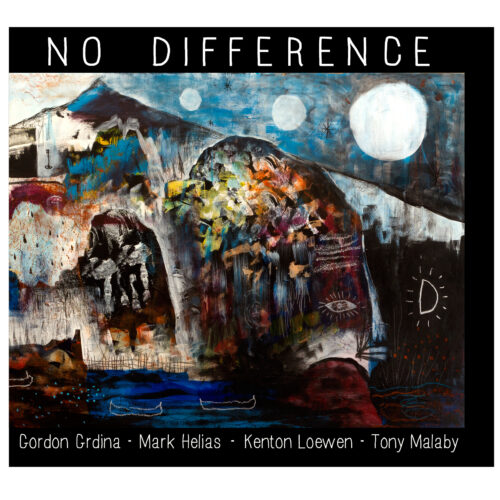In an expansive sequence of instrumental duos and trios, pianist-composer Chris Gestrin inspires a community of musicians to improvise meditative soundscapes.
– Mark Werlin
In the summer of 2004 Vancouver keyboardist Chris Gestrin spent three intense days in the studio on a Steinway D, recording in DSD with nine different duo and trio groupings of musicians from Vancouver’s vibrant creative music scene for the album After The City Has Gone: Quiet.
Apart from a handful of compositions, including a few solo piano pieces, all the music was completely improvised, exploring the process of spontaneous composition with concentration, finesse and expressive power. In the course of a long process of listening, selecting and mixing, we decided that Chris would sequence two discs of music, because just one would not adequately represent the unique approach of each session and yet how they’re all connected. (The first disc is tracks 1-15, the second tracks 16-28.)
The collaborators Chris chose for the project were either longtime friends or people he was eager to work with in this context – musicians who, like him, are skilled at both “inside” and “outside” playing and who like to develop ideas without limitations or preconceptions. So there are pieces here that sound like some kind of ambient/world music, contemporary chamber music, more “traditional” improv, or jazz, but most of them don’t take well to simple categorization. The discovery of an expressive pathway through each piece, and from piece to piece, is the record’s artistic statement, and it has a lot to do with Chris’s approach to music as a discipline. In the liner note he writes, “To me, improvised music is a form of meditation…to put it simply, I live music like I wish I could live my life. It’s not always possible to be 100% present when I’m creating music, but when it happens it really is true enlightenment. The music happens exactly as it should without any effort on my part. I am happy that this recording has captured a number of these moments.” An example? “There is one moment that gets me every time I hear it. On the duo with Peggy Lee, “D.S.,” at approximately 1:19, there is a complete shift in texture, rhythm and harmony that we both make simultaneously.”
The kind of deep listening going on here is accompanied by an enjoyment of many different kinds of music – which is perhaps related to studying film composition rather than jazz performance at Berklee in the mid-’90s. How did he come to synthesize these different interests and approaches into a personal style that has been characterized as imagistic or cinematic? “I don’t feel that I made any conscious choices about how all my influences were going to be incorporated into my personal style.On a spiritual level, I derive as much satisfaction listening to AC/DC as I would listening to Shostakovich or Keith Jarrett. I guess one common trait that is ingrained in the majority of my music is a constant attention to harmonic and melodic content. Even if it’s obscure, I’m always hearing some movement in that sense.”
As Chris writes in the liner note, “I draw musical inspiration from nature and visual art but most often my motivation is sound itself” – thus it was important to do full justice to the shifting sonic textures and the space that encompasses the music. After the city has gone : quiet is a record that amply rewards close attention and an open mind.
Chris Gestrin, piano, prepared piano, percussion
Jon Bentley, saxophones
Bernie Arai, drums
Jeremy Berkman, trombone
Jess Zubot, violin
Miles Black, piano
Bill Clark and J.P. Carter, trumpets
Joseph Pepe Danza, shakuhachi, ney, hang, percussion
Gordon Grdina, guitar, dobro
Peggy Lee, cello
Ron Samworth, guitar
Dylan van der Schyff, drums
Tracklist
Please note that the below previews are loaded as 44.1 kHz / 16 bit.Total time: 02:01:37
Additional information
| Label | |
|---|---|
| SKU | SGLSA15682 |
| Qualities | DSD 512 fs, DSD 256 fs, DSD 128 fs, DSD 64 fs, DXD 24 Bit, FLAC 192 kHz, FLAC 96 kHz |
| Channels | |
| Artists | |
| Composers | Arai, Bentley, Berkman, Black, Carter, Clark, Danza, Gestri, Gestrin, Grdina, Lee, Samworth, van der Schyff, Zubot |
| Genres | |
| Original Recording Format | |
| Instruments | Dobro guitar, Saxophone, Trombone, Cello, Drums, Guitar, Percussion, Piano, Trumpet, Violin |
| Recording Engineer | Sheldon Zaharko |
| Recording Location | The Factory, Vancouver |
| Mastering Engineer | Graemme Brown |
| Mixing Engineers | Graemme Brown and Chris Gestrin |
| Release Date | December 1, 2023 |
Press reviews
NativeDSD Blog Review
In an expansive sequence of instrumental solos, duos and trios, pianist-composer Chris Gestrin inspires a community of musicians to improvise meditative soundscapes.
Investigation is the driver of creative chamber jazz. In the 28 tracks of “after the city has gone : quiet”, pianist-composer Chris Gestrin engages in thoughtful, penetrating dialogues and trialogues with 12 of his Vancouver-based new music colleagues. It’s a bravura concept, realized through elegant performances in superb sonics.
Only logged in customers who have purchased this product may leave a review.







Reviews
There are no reviews yet.